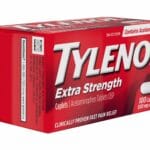Probiotics. You’ve likely heard the buzz. They’re in everything from yogurt to supplements, promising a range of health benefits. But what are probiotics, and can they truly deliver on these promises? This guide breaks down the science, exploring the potential benefits of these beneficial bacteria (and yeasts!) for gut health and beyond, offering advice on choosing the right probiotic for you. Whether you’re a probiotic novice or just looking to refresh your knowledge, this comprehensive guide will empower you to navigate the world of probiotics.
Understanding Probiotics
What are Probiotics?
Your gut is a complex ecosystem teeming with trillions of microorganisms—your gut microbiome. Probiotics are live microorganisms, primarily bacteria and some yeasts, that, when consumed in adequate amounts, may confer health benefits. They act as beneficial residents of your gut, influencing everything from digestion to immunity. While research is ongoing, some studies suggest a robust gut microbiome, supported by probiotics, may even play a role in overall well-being.
The Benefits of Probiotics: Beyond Digestion
Probiotics are often associated with digestive health, and for good reason. They can potentially offer relief from bloating and irregularity. However, their potential benefits extend beyond the gut. Emerging research suggests probiotics may play a role in immune function and even mental well-being. While more research is needed to confirm these benefits, the current evidence is promising.
Probiotic Sources: Food vs. Supplements
Incorporating probiotics into your diet can be as simple as enjoying probiotic-rich foods. Yogurt, kefir, sauerkraut, and kimchi are just a few examples. For those who prefer a more convenient option or have specific dietary needs, probiotic supplements offer a concentrated dose of beneficial microorganisms. These supplements come in various forms, from capsules and tablets to powders and liquids. However, with a plethora of options available, choosing the right supplement can be challenging.
Choosing and Using Probiotics
Selecting the Right Probiotic Supplement
Navigating the world of probiotic supplements requires understanding that different strains offer different benefits. Just as a diverse team has members with unique skills, the Lactobacillus and Bifidobacterium genera contain numerous strains, each with specific functions. For example, some strains may be better suited for digestive issues, while others might support immune health. Researching specific strains is crucial. While some online resources provide information about strain benefits, consulting a healthcare professional for personalized recommendations is essential, particularly if you have underlying health conditions. They can help you understand what strains may best support your specific needs.
Probiotic Safety and Precautions
Probiotics are generally considered safe for most people. However, some individuals may experience mild, temporary side effects like gas or bloating, especially when first starting a probiotic regimen. These symptoms typically subside with continued use. People with weakened immune systems should exercise caution and consult their doctor before incorporating probiotics. While rare, more serious complications are possible in certain cases.
Prebiotics, Synbiotics, and the Bigger Picture
Probiotics are the stars of gut health, but they rely on supporting players. Prebiotics, non-digestible fibers, act as nourishment for probiotics, fostering their growth in the gut. Foods like onions, garlic, bananas, and asparagus are good sources of prebiotics. Synbiotics offer a combined approach, containing both probiotics and prebiotics, potentially enhancing the effectiveness of the probiotics.
| Term | Definition | Example |
|---|---|---|
| Probiotic | Live microorganisms that may provide health benefits when consumed in adequate amounts. | Lactobacillus, Bifidobacterium |
| Prebiotic | Non-digestible fibers that serve as food for probiotics. | Inulin, fructooligosaccharides |
| Synbiotic | A product that combines both probiotics and prebiotics. | A supplement containing Lactobacillus and inulin |
The Future of Probiotic Research
The field of probiotic research is dynamic and continually evolving. Scientists are actively exploring the gut-brain connection, developing targeted probiotic delivery systems, and investigating the full potential of these fascinating microorganisms. As research progresses, our understanding of probiotics is likely to expand. Unlock the secrets to easing jaw tension and discomfort with effective muscle relaxers for TMJ.
When to Take Probitec: Optimizing Your Routine
Probitec, a popular probiotic brand, offers a range of probiotic strains. But timing matters. This section explores how to maximize the effectiveness of Probitec.
Timing Strategies for Probitec
Stomach acid can be harsh on probiotics. Taking Probitec 20-30 minutes before breakfast, when stomach acid is generally lower, is often recommended. This allows more beneficial bacteria to reach the intestines. However, this isn’t a strict rule. Factors like individual metabolism and diet play a role.
Consistency and Individual Needs
Consistency is key. Daily Probitec intake, even if not perfectly timed, is more important than sporadic perfect timing. Consult your doctor about potential interactions if you take other medications. They can also help you choose the right Probitec strain for your individual needs. Some strains might be more effective for specific conditions, like diarrhea or constipation.
How to Use Vetafarm Probiotics for Your Pets
Vetafarm Probiotics offer digestive support for your feathered and furry friends.
Administering Vetafarm Probiotics
Birds: Mix 1 gram of Probotic per liter of water. Alternatively, mix it thoroughly into their food. Probiotics are particularly helpful for baby birds on non-Vetafarm formula, recovering birds, and birds treated with antibiotics.
Dogs/Puppies: Dosage depends on size and health status.
| Size | Stress Dose (Daily) | Maintenance Dose (Daily) |
|---|---|---|
| Small Dog (under 10kg) | 2g | 1g |
| Medium Dog (10-25kg) | 4g | 2g |
| Large Dog (over 25kg) | 6g | 3g |
Double the maintenance dose during stressful times. Mix Probotic with food or water, but avoid mixing it with other products in water. Delve into the fascinating world of collagen-boosting peptides and discover the power of Progeline for a more youthful appearance. Finally, embark on a journey to understand the precise measurements behind effective weight management with a detailed guide on semaglutide doses in units. Consult your veterinarian for tailored advice.
- Sept 31 Myth: Unveiling Calendar Secrets - March 18, 2025
- How Long & Till December 18, 2025: Accurate Countdown Guide - March 18, 2025
- Discover Japanese Artists: A Complete History - March 18, 2025















3 thoughts on “Decoding Probiotics: Your Guide to Gut Health, Immunity, and Beyond”
Comments are closed.